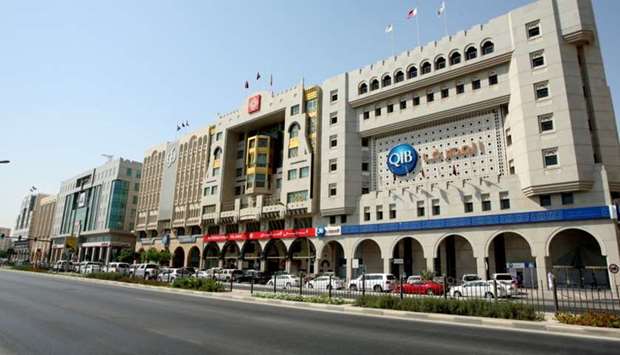Qatar’s banking system remains healthy with ample liquidity, high asset quality and strong capitalisation, although external pressures remain due to the unjustified blockade on the country by a quartet of Arab nations.
With liquidity levels strong and earnings solid, international ratings agencies and the Qatar Stock Exchange (QSE) have “expressed confidence” in the financial stability of the country’s banks.
Qatar’s banking sector remains “resilient and healthy” with credit continuing to flow, ample liquidity and asset quality and profitability robust.
Qatar’s eight-largest banks posted combined net profits of QR12bn for the first half of 2018; a 10.6% year-on-year (y-o-y) increase on 2017, Oxford Business Group said, citing data released by the QSE.
The banks cited a combination of asset growth, improved returns on investment and earnings from lending as key factors behind the profit increase.
Earlier this month, S&P Global Ratings revised its outlook on Qatar to ‘stable’ from ‘negative’ on the strength of the country’s macroeconomic resilience, also a vote of confidence on local banks.
The rating agency noted the “outflow of external financing” for Qatari banks, primarily non-resident deposits and inter-bank placements – an impact of the blockade – was “offset by liquidity injections” from the Qatar Central Bank and repatriation into the domestic banking sector of about $40bn in the public sector, mostly the Qatar Investment Authority assets previously held abroad.
S&P noted it does not expect the Qatari banks to need additional government support, and non-resident deposits have gradually returned to the banking system.
Recently, HE the Qatar Central Bank Governor Sheikh Abdullah bin Saoud al-Thani said commercial banks’ assets grew by 3.5% y-o-y, while reserve cash registered a strong growth by 14.3%.
Sheikh Abdullah noted, “The banking sector has provided seamless financial services to their customers even in the midst of initial disturbances. The deposit outflows from non-resident deposits in the first few months of the blockade were well absorbed by the banking sector through proactive liquidity management with the guidance and support of the QCB.
“In recent times, there has been inflow of non-resident deposits from the US, European and Asian countries reflecting the confidence of foreign depositors in the Qatari financial system. The recent reports from the credit ratings agencies indicate that banks have recorded improvements in their rating.”
Analysts say Qatar’s banking system remains well capitalised with banks’ capital adequacy ratio (CAR) rising to 16.8% in 2017; up from 16.1% in 2016 and well above the Basel III guidelines.
Asset quality also remains high with non-performing loans (NPLs) steady at 1.7% of the capital last year. Profitability remains solid with returns on equity (ROE) close to 14%.
Helped by higher hydrocarbon revenues, deposit growth of around 6% is expected in 2018, ticking higher to 7.5% in 2019.
Solid loan growth of 5% is expected this year, firming to 7% in 2019 helped by higher credit demand in both the public and the private sector, QNB had said in an earlier report.
This year, the QCB set up the Supreme Emergency Committee headed by the Governor to monitor the day-to-day work of financial institutions in the country, addressing emergency matters and removing all obstacles to the flow of work.
The QCB also launched the second strategic plan for the financial sector (2017-2022), which was prepared in co-ordination with the three regulatory bodies: The QCB, the Qatar Financial Markets Authority, and the Qatar Financial Centre Regulatory Authority.
The plan is currently being implemented in line with the National Development Strategy and the Qatar National Vision 2030.
The QCB has issued a number of instructions and resolutions to the financial sector and to banks and insurance companies to regulate the work and define the responsibilities and obligations.
The central bank also updated the manual for the work of Anti-Money Laundering/Combating the Financing of Terrorism (AML/CFT) department and developed the AML/CFT system in preparation for the evaluation of the Financial Action Task Force (FATF) in 2019.
The QCB has been co-ordinating with the Ministry of Finance, Qatar Petroleum and the Qatar Investment Authority on the policy of financing state projects.
It also co-ordinated with the Planning and Statistics Authority regarding the implementation of the annual and quarterly foreign investment surveys and the institutional modernisation strategy.
Another QCB project that gained traction this year was the establishment of an electronic platform for receiving and sending information and linking the financial sector through an information management database to reduce cyber threats. This is being done in co-operation with Qatar's National Centre for Information Security (Q-CERT).


